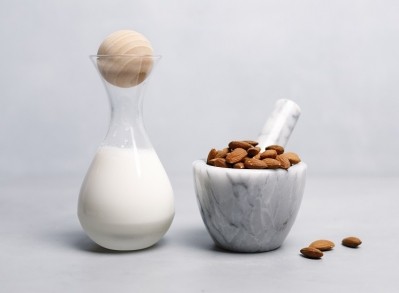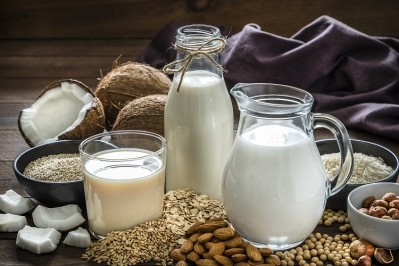‘Melty and gooey’ plant-based cheese developed after 4 years of R&D: ‘Most on the market don’t melt, just soften’
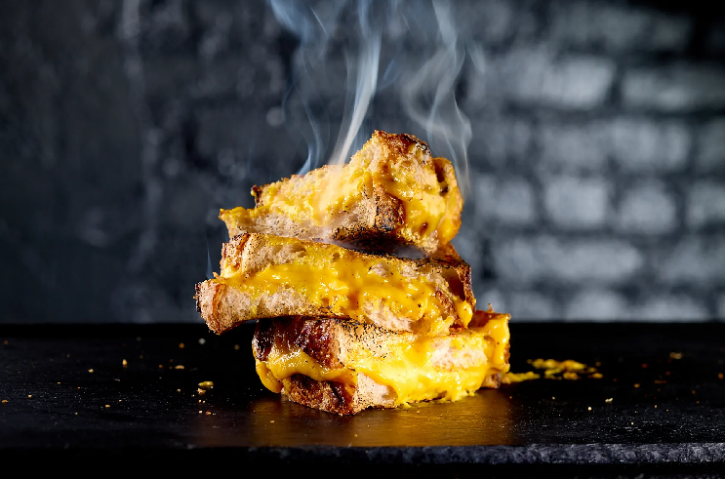
The new product has been aptly coined MELT. The dairy-free alternative to cheddar – made from fermented legume milk and other ingredients – responds to something Stockeld Dreamery co-founder and CEO Sorosh Tavakoli describes as ‘plant fatigue’.
“I’ve heard so many stories of disappointment related to plant-based cheese over the years. The cheese that never melted, the cheese that ruined the entire pizza or burger, the plasticky texture that made a friend question if it was really food or plastic,” commented Tavakoli.
“This is the consequence of the consistent over-promising and under-delivering of our industry giving consumers ‘plant fatigue’. If anything, this has fuelled our product obsession over the last few years.”
By ‘few years’, Tavakoli means four. And actually for three of those, the Sweden-born start-up (which has since expanded to the US), was set on developing a plant-based mozzarella for the American pizza market. But a late-in-the-game pivot saw what started out as vegan mozzarella transform into a plant-based cheddar alternative designed for burgers, grilled cheese sandwiches, macaroni cheese and similar applications.
“We aim to increase the number of restaurants carrying dairy-free cheese, to make operators give consumers a choice when they order burgers, whatever the patty is made of, and to make kid’s menus more accessible with dairy-free grilled cheese,” said Tavakoli.
How has Stockeld achieved a ‘melty and gooey’ plant-based cheese?
When one thinks of vegan cheese, ‘melty and gooey’ are likely not the first adjectives that come to mind. This is because meltability remains a ‘huge problem’ for products in the dairy-free cheese category, according to the Stockeld CEO. “We haven’t seen anyone stand out yet.”
But the start-up is hopeful things will start to change as new and ‘better’ products help turn the tide on perceptions that all vegan cheese is terrible. “We believe our product is so good that if it weren’t for the cost, we could easily be the default cheese in burger restaurants. There are no allergens and the experience is on par.”
Stockeld has been laser focused on achieving meltability in its cultured cheddar alternative. Although the product works unheated, the CEO describes it as ‘spectacular’ when melted. “Most products don’t actually melt, they just soften, so if you put two separate pieces next to each other, they never fully merge.”
As to how Stockeld has achieved meltability, it comes down to ‘multiple factors’. “There is no one silver bullet: the fermentation plays a big role, but so do many other things.”
The primary ingredient in the formulation is fermented legume milk (made from water, pea protein and cultured). Other ingredients include potato starch, coconut oil, rapeseed oil, beta carotene for colour, natural flavours and yeast extract.
Once combined, the cheese needs to settle or ‘age’ for a few weeks before being ready to slice. Tavakoli describes the bite as ‘creamy’ and told us it is a ‘solid step’ in the right direction towards achieving completely ‘stickiness’-free vegan cheese.
Comparing MELT’s nutrition to other vegan cheeses (and to the real thing)
By leveraging fermentation, Stockeld perceives itself as pushing into the ‘third wave’ of dairy-free cheese.
If the first wave was defined by homemade nut cheeses for small scale production (clean label, nutritious, but potentially lacking in texture and flavour), then the second wave refers to a more industrial approach: large-scale production of vegan cheeses made from starches, fats and aromas. “This cheap method laid the ground for the next phase of growth, bringing plant-based cheese to 1-2% of total cheese sales, but not further,” commented Tavakoli.
The third wave, within with Stockeld finds itself, is ‘naturally fermented’ to improve functionality and organoleptic profile. “The fermentation of this wave is combined with industrial scale manufacturing and more functional, accessible and affordable ingredients than nuts, such as legumes or oats.
“Fermentation helps bring more authentic flavour to cheese, it gives cleaner ingredients lists and increased health benefits. And we are still only scratching the surface of what is achievable.”
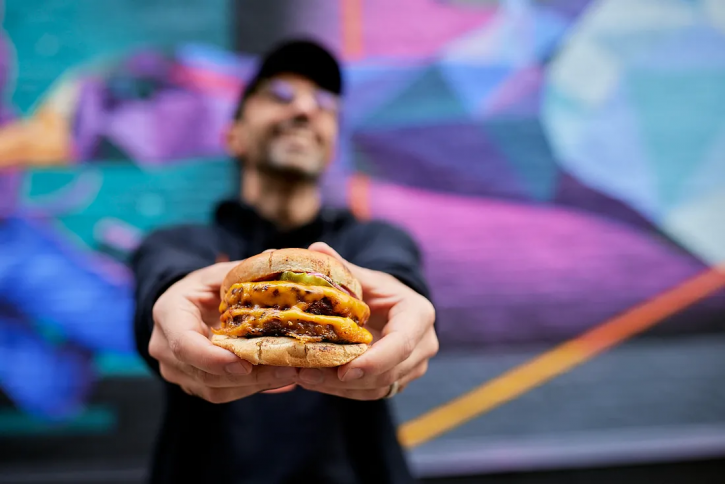
From a nutrition perspective, Stockeld’s MELT contains 2g protein per 36g serving (two slices). Although currently lower on the protein scale than, say, Kraft Heinz’s Kraft Singles cheese products (4g protein per 21g serving), Stockeld’s higher is still higher than most in the dairy-free cheese category, we were told.
“To set the context here, most vegan cheddar cheeses have zero protein. With our 2g per 36g serving, we’ve made a big jump… The protein adds plenty of benefits in terms of bite, stickiness, the creamy texture and other aspects, but it also comes with plenty of challenges that have to be battled.
“Without a technology breakthrough, dairy levels of protein are just not going to be achievable.”
Bringing ‘melty’ plant-based cheese to the masses
The first wave of plant-based cheeses was labour intensive to produce and challenging to scale; the second, much easier. How does Stockeld’s MELT, which could be
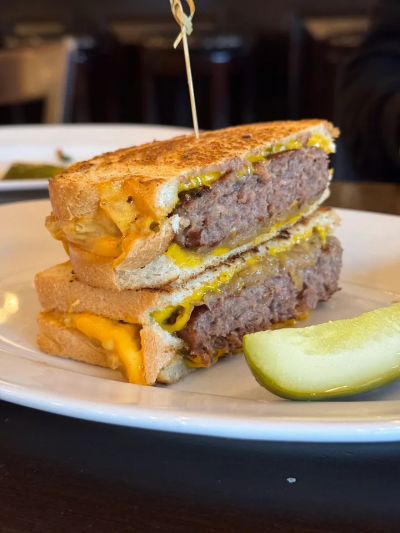
interpreted as a mix between the two, achieve commercial scalability?
The solution lies in combining industrialised production with more functional, accessible and affordable ingredients such as legumes, the CEO suggested. Of course, the fermentation process and added protein content does make this kind of product more expensive, but with that comes ‘superior functionality, taste and nutrition’.
In reaching the masses, Stockeld is primarily marketing the product for burgers and grilled cheese use cases. MELT ‘easily’ melts (without a cloche) in a meat burger, since the patty usually releases enough steam once cooked. Plant-based burgers produce less steam, so often users will need to add extra heat for a few seconds to the cheese for a few seconds.
“There is some stretch in the product and we are moving in the right direction, but I’m not going to claim it resembles dairy. When fried, the cheese actually becomes crispy which I personally love,” Tavakoli told this publication.
Although originally headquartered in Sweden, Stockeld has since expanded its presence to the US and is now putting more focus on the American market. The start-up still sells its products in Europe, but predominantly to larger customers or B2B players.
In the US, MELT is being sold by burger operators and restaurants, with a retail launch planned mid-2024.
“Our approach is to first launch a product here and to export it to Europe until it warrants setting up local production,” the CEO revealed. “We are engaged in a few strategic opportunities for Europe and would love to explore others, to see how we can give the product and IP wings beyond the US.”


